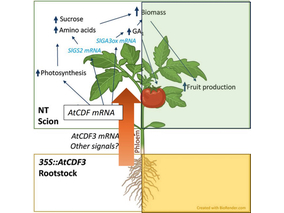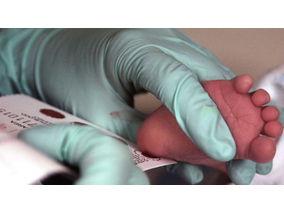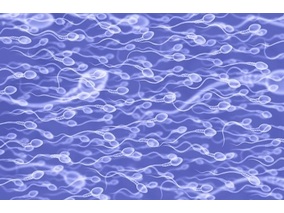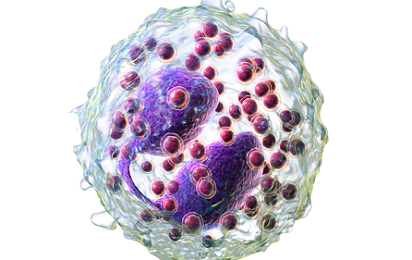Mutations in the RHO gene are the main cause of dominant forms of retinitis pigmentosa (RP). RHO dictates the production of rhodopsin, a transmembrane protein present in large quantities in the outer segment of rod photoreceptor cells which, together with 11-cis-retinal, initiates the phototransduction cascade. Mutations in RHO often cause photoreceptor toxicity because they negatively affect the function of the normal protein.
Gene therapy for inherited dominant diseases is more complex than for recessive diseases. In dominant diseases, administration of a functional copy of the gene is not enough to obtain a therapeutic effect, but first requires blocking the production of the mutated protein to avoid its toxic effects. To solve this complexity, researchers from the John Radcliffe Hospital in Oxford and Moorfields Hospital in London have successfully tested an innovative gene therapy using two combined molecular tools. The first blocks the endogenous production of rhodopsin (both the mutated and the normal gene copy) and, to achieve it, uses a particular kind of artificial small RNA molecules, called mirtrons. The second provides a slightly modified functional copy of the RHO gene, modification that makes it resistant to mirtron-induced degradation.
This new elimination/replacement therapy is independent of the type of mutation and is supplied subretinally using a modified adeno-associated virus (AAV). The results obtained in mice are positive and constitute an important step forward for gene therapy of dominant retinal diseases. In addition, they demonstrate the in vivo efficacy of this innovative methodology.

AtCDF3 gene induced greater production of sugars a...

Un estudio con datos de los últimos 35 años, ind...

Un equipo de investigadores de la Universidad Juli...

En nuestro post hablamos sobre este interesante tipo de célula del...

Palobiofarma S.L. is pleased to announce the “last patient last visi...
Biotechnology portal in Spain
Subscribe to our newsletter and stay up to date with the latest news and deals!
2013 © Biotech-Spain.com - Site Developments SL. All Rights Reserved. Terms of Service | Privacy Policy
Articles
Directory
